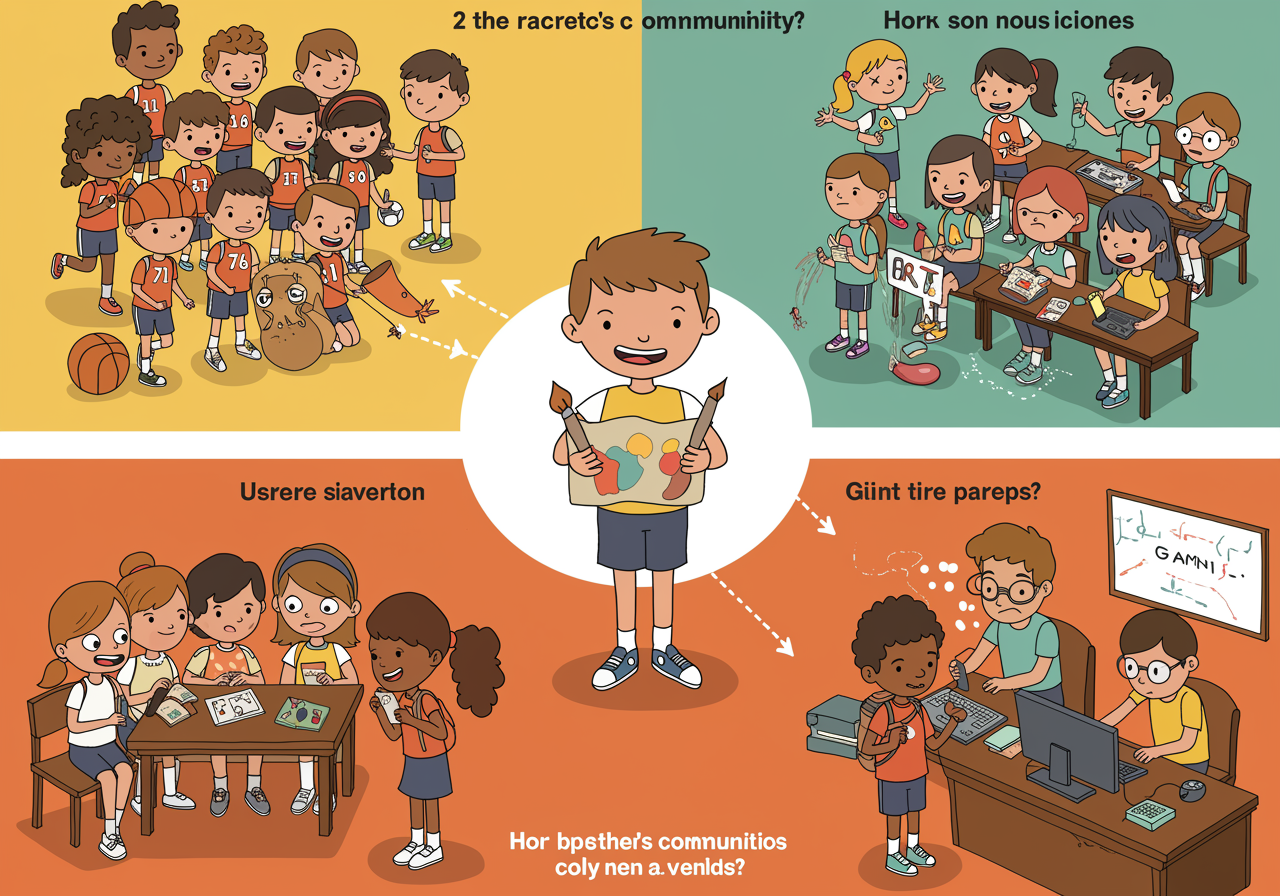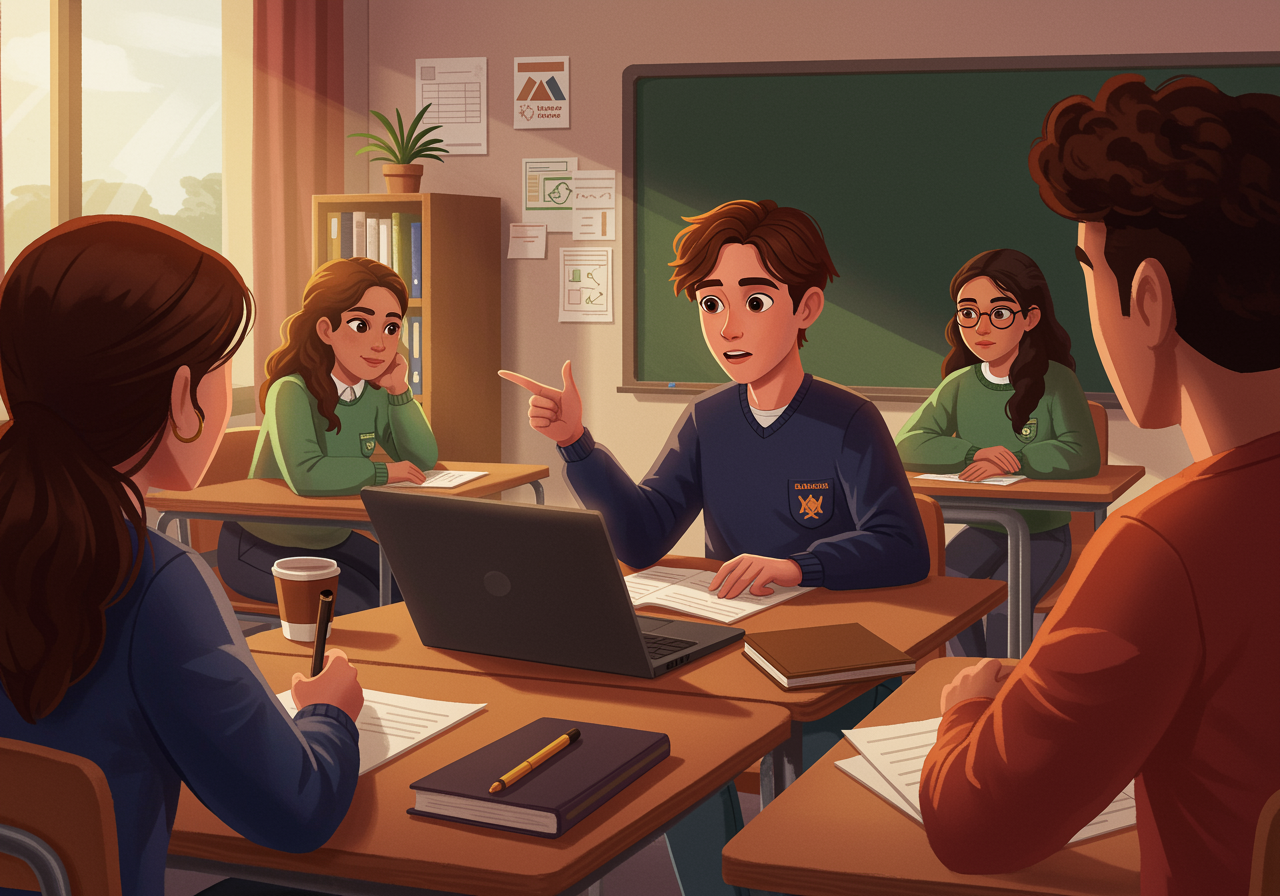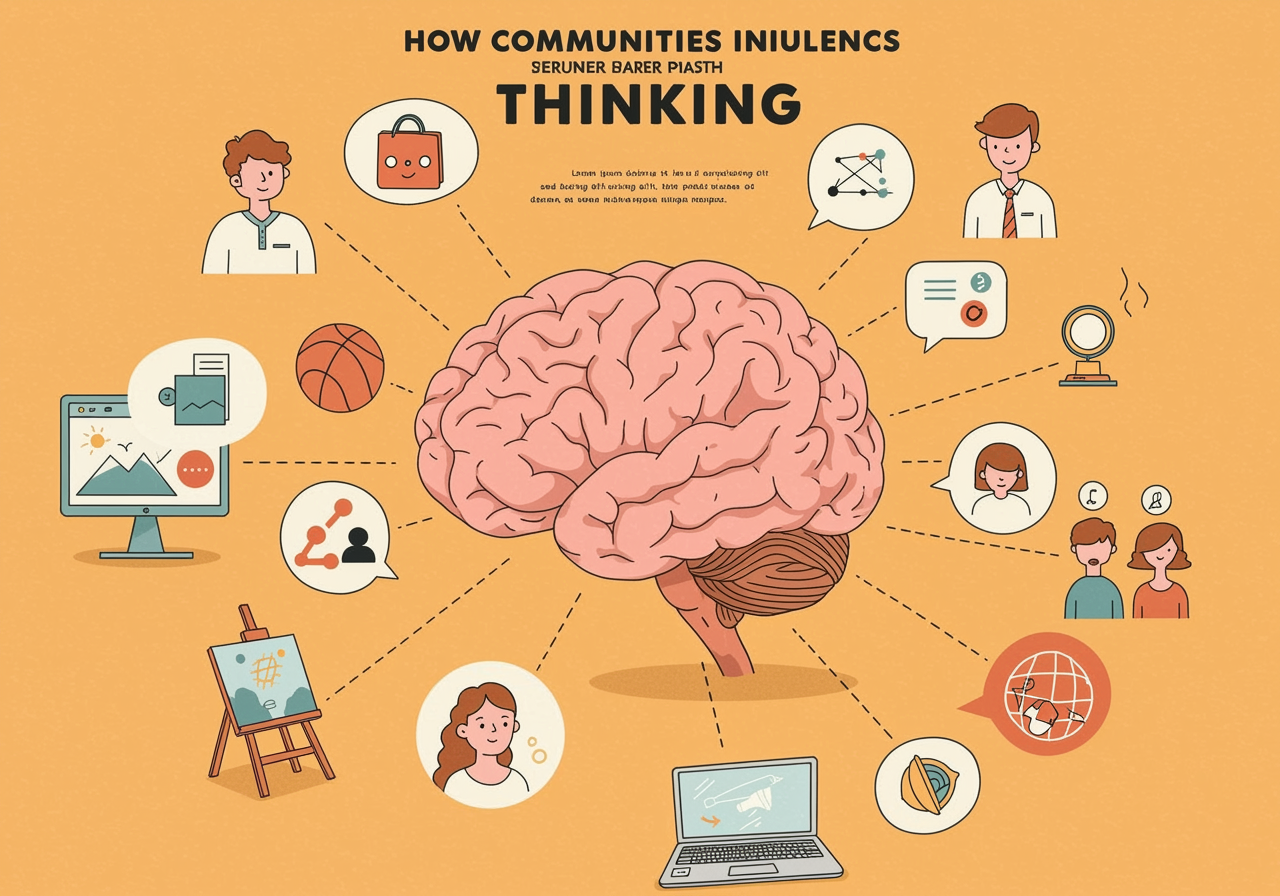The Community Effect: How Your Tribe Shapes Your Brain
Discover the amazing science behind how groups change the way we see everything
Ever wonder why you think differently when you’re with your friends versus when you’re alone? Let’s explore the fascinating science of how communities rewire our brains!
Overview
Think about how you act differently when you're with your gaming friends versus your family versus your soccer team. That's not just you being different – that's your brain actually changing based on the group you're with! Communities are like invisible forces that shape how we think, what we notice, and even what we believe is possible. Understanding this superpower helps us make better choices about the groups we join and how we influence others around us.

Understand in 30 Seconds
Get up to speed quickly
- Your Brain is a Social Sponge: When you're part of a group, your brain automatically starts copying how others think and act. It's like your mind has Wi-Fi that connects to everyone around you!
- Groups Create Invisible Rules: Every community has unspoken rules about what's cool, what's important, and how to behave. These rules shape what you pay attention to in the world.
- Echo Chambers are Real: When everyone in your group thinks the same way, it can make those ideas seem like absolute truth – even when they might not be.
- You Have Community Superpowers: Being part of different communities gives you multiple perspectives, like having different lenses to see the world through.
Real Life Scenario
Situations you can relate to
Imagine you just joined the debate team at school. Suddenly, you start noticing news stories you never paid attention to before. You begin thinking about both sides of arguments instead of just one. Your friends who aren't on debate team think you're getting 'too serious' about politics. What's happening? Your brain is adapting to your new community! The debate team values critical thinking and evidence, so your brain starts filtering the world through that lens. Meanwhile, your other friend group might value being chill and not overthinking things. Neither is wrong – but each community is training your brain to notice different things and think in different ways.

Role Play
Spark a conversation with “what if” scenarios
What if you could spend a day seeing the world through the eyes of different communities you belong to?
- Role play: Take turns pretending to be members of different groups (sports team, art club, gaming community) and describe how each group would react to the same news story or school event.
What if you had to explain your favorite hobby to someone from a completely different community?
- Role play: One person explains their passion (like skateboarding) to someone pretending to be from a very different community (like classical music enthusiasts) and see how perspectives clash and connect.
What if you could design the perfect community?
- Role play: Work together to create an imaginary community with its own values, traditions, and ways of thinking. Discuss how being part of this community would change how members see the world.
FAQs
Frequently asked questions people want to know
Is it bad that I act differently with different friend groups?
Not at all! It's totally normal and actually shows your brain is working well. You're adapting to different social situations, which is a valuable life skill.
How do I know if a community is influencing me in a good or bad way?
Ask yourself: Does this group encourage me to be kind, curious, and true to my values? Does it help me grow or make me feel like I have to hide parts of myself?
Can online communities affect me the same way as real-life ones?
Absolutely! Your brain doesn't distinguish much between online and offline communities. Both can powerfully shape how you think and see the world.
Examples in the Wild
See how this works day to day
- Studies show that when students join environmental clubs, they become 3x more likely to notice climate change news and take eco-friendly actions (Journal of Environmental Psychology, 2023)
- Research found that kids who join diverse friend groups score higher on creativity tests because they're exposed to different ways of thinking (Developmental Psychology Research, 2023)
- Social media algorithms create 'filter bubbles' where people in the same online communities see completely different news stories about the same events (MIT Technology Review, 2023)
- Athletes who train in supportive team environments show increased brain activity in areas related to perseverance and goal-setting (Sports Psychology Today, 2023)
In Summary
What you should know before you start
- Communities act like invisible filters that change what we notice and how we think about the world
- Being part of multiple diverse communities gives us more complete and flexible ways of understanding life
- Our brains are naturally wired to copy and adapt to the groups we belong to – it's not weakness, it's human nature
- We can choose our communities wisely and be mindful of how they influence our thoughts and actions
Pro-tip for Parents
You got this!
If your teen seems to have dramatically different opinions or interests after joining a new group, don't panic! Instead, get curious. Ask them to teach you about what they're learning and why it matters to them. This shows respect for their growth while keeping communication open. Remember, exploring different perspectives through communities is how young people develop their own authentic identity.

Keep an Eye Out For
Find these examples in everyday life
- Notice how your child's interests or language changes when they join new activities or friend groups
- Watch for news stories about social media influence, peer pressure, or community movements to spark discussions
- Pay attention to how different communities in your own life (work, neighborhood, hobbies) influence your own thinking
Explore Beyond
Look up these related research topics
- How do social media algorithms affect what we believe is true?
- Why do some groups make better decisions than individuals while others make worse ones?
- How does being part of multiple cultures or communities affect identity?